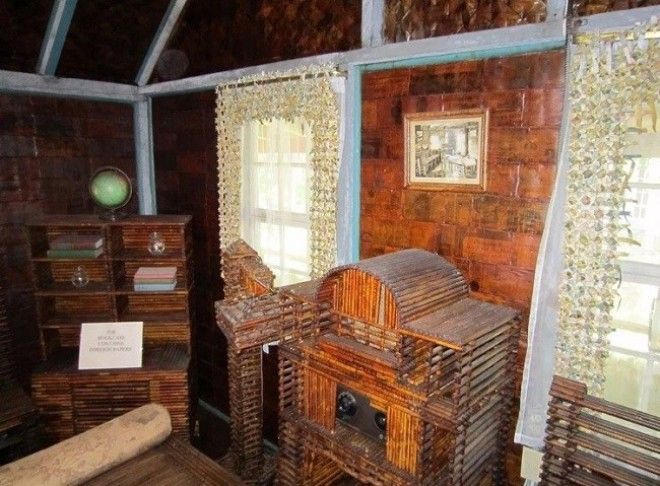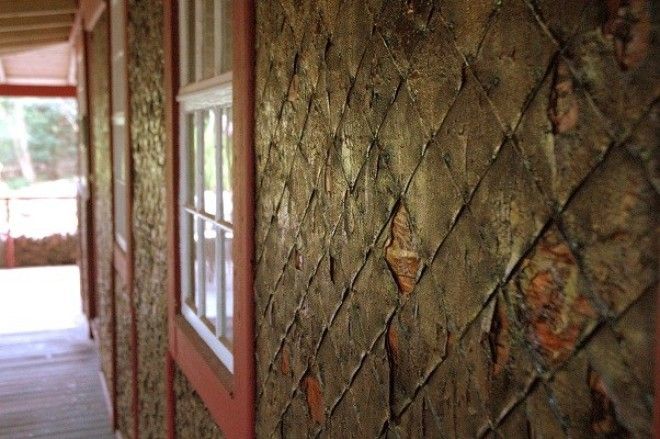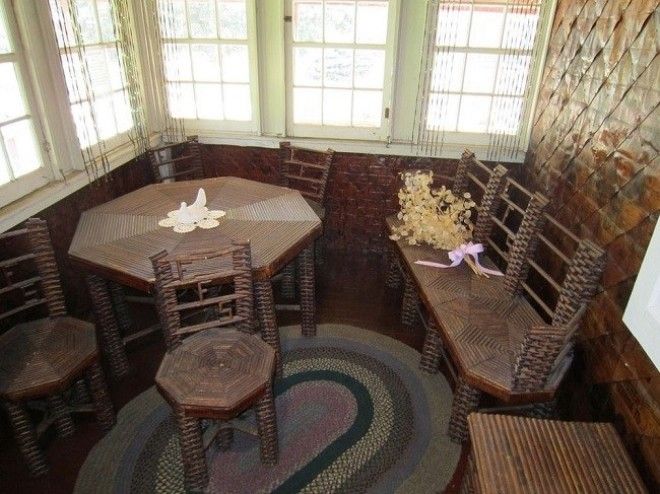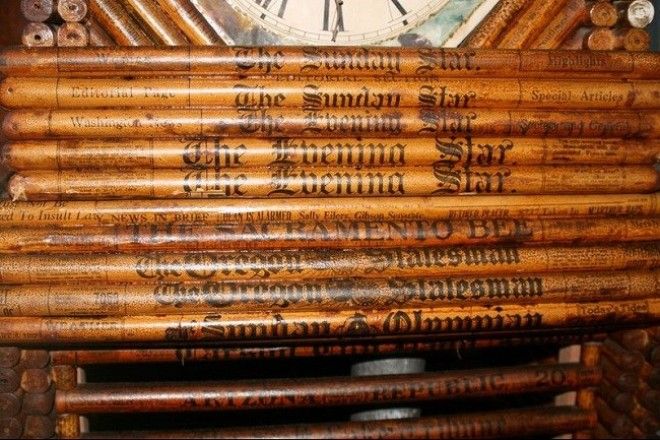The house in Rockport is just one storey and looks like an ordinary log cabin. But on close inspection you’ll be amazed to find it is made of paper.
1. A house with walls and interiors made entirely from old newspaper
The paper house was built sometime in 1922. It was the brainchild of a mechanical engineer named Elis Stenman who started constructing a small summer home that had a timber frame, a shingle roof and floors. Stenman hit upon the novel idea of making the walls entirely of old newspaper. The walls of the paper house are made up of layers of old newspaper glued together to a thickness of 1 inch. On top of the paper he applied a coat of varnish to give it the present effect.

2. The furnishing inside the Rockport paper house is also made from paper
Almost all furnishing and décor inside the house is made from paper. Chairs, curtains, bookshelves and even a clock are all made from newspaper. The only item made from wood is the piano but that to has been covered in appear to maintain the theme of the house. The fireplace of course had to be made from bricks.

3. Even the glue was homemade
What possessed Stenman to construct a home made from paper is unknown. However his descendants feel he wanted to construct the home using cheap insulation because it was the time of the great depression and materials for construction was expensive. Even the glue Sten man used was home made using flour, water and apple peel.

4. The man who invented the machine which makes paper clips
Yes !! Stenman was the designer of the machine that made paper clips. He loved paper and the thought of recycling. Although he planned on layering the outside walls with clapboard, he decided against it because the paper insulation held out extremely well in the first winter. Stenman completed the house in two years and even lived in it till 1930.

5. Newspaper articles can be seen featuring historical news
Stenman’s Rockport paper house was built form 100,000 newspapers. The house has stood for ninety years but now paper can be seen peeling off which is also an attraction in itself as it reveals a part of history in the form of newspaper articles of the time. On the writing desks you can read of accounts like the first transatlantic flight of Charles Lindbergh. The radio cabinet features an article of Herbert Hoover’s presidential campaign. The house was converted into a museum after Stenman died in 1942.


